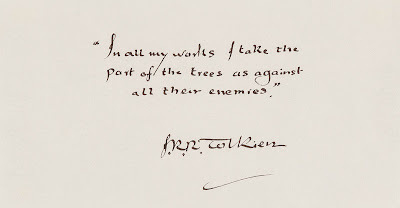My colleague Philip Jenkins has written a lovely commendation of my edition of Auden’s The Shield of Achilles, with a particular emphasis on the “Horae Canonicae.”
Experimenting with B&W film (llford HP5 Plus 400).


Finished reading: Charmed Lives by Michael Korda. One of the most remarkable memoirs I’ve ever read, full of amazing stories. The ones about (a) Orson Welles and (b) a decrepit member of the Rothschild family are worth the price of admission by themselves. 📚
Another Trollope post: the counterpart to Lady Arabella.

“The Title I have chosen for this Treatise, is a Reproach universally thrown on this Island by Foreigners, and all our Neighbours on the Continent, by whom Nervous Distempers, Spleen, Vapours, and Lowness of Spirits, are, in Derision, call’d the ENGLISH MALADY. And I wish there were not so good grounds for this Reflection. The Moisture of our Air, the Variableness of our Weather, (from our Situation amidst the Ocean) the Rankness and Fertility of our Soil, the Richness and Heaviness of our Food, the Wealth and Abundance of the Inhabitants (from their universal Trade), the Inactivity and sedentary Occupations of the better Sort (among whom this Evil mostly rages) and the Humour of living in great, populous, and consequently unhealthy Towns, have brought forth a Class and Set of Distempers, with atrocious and frightful Symptoms, scarce known to our Ancestors, and never rising to such fatal Heights, nor afflicting such Numbers in any other known Nation. These nervous Disorders being computed to make almost one third of the Complaints of the People of Condition in England.”
After watching Ukraine-Belgium, I’m thinking that the malaise afflcting England — the English players look and sound genuinely disconsolate that they didn’t get knocked out — is spreading to the rest of the tournament. It used to be said that melancholy is “the English malady” — true once more! ⚽️
I wrote about Trollope’s bluntness re: money.
VAR check in the Brazil- Costa Rica match is taking so long that I’ve just turned the match off. The people who run footy are just killing the game. ⚽️
Cloud.

I wrote about waiting for people to realize that they’re just eating grass.
Finished reading: Vows by Cheryl Mendelson. A remarkable book! I wrote some thoughts here. 📚
Recently bought at auction [CLARIFICATION: But not by me!]


Fascinating: in China, bookstore book placement as political protest.
I am interested in the Texas v. New Mexico case because I am fascinated by the perennial shortage of water in the West and horrified by our persistent refusal to face the facts. I wrote an essay last year, for Raritan, on how that crisis looks from this side of the 100th meridian: here it is.
IANAL, but I am fascinated by legal arguments, and will sometimes read and annotate SCOTUS opinions, for instance, Texas v. New Mexico. N.B.: That has no intellectual value, it’s just one of the weird things I do. Any lawyer will see how little I know.
A stop-motion animation version of Susanna Clarke’s Piranesi? Yes, please. Please, please, PLEASE.
I wrote about how to be a non-infantile observer of the Supreme Court.
It’s Lagerstroemia season here in central Texas.

I’m telling you, this kind of thing wouldn’t happen if Gareth Southgate were alive. ⚽️
Owen Hargreaves, commenting for Fox, was in a lather about England’s passivity even before the Denmark goal — and rightly so. They do this every match! ⚽️
I wake up every morning with a song in my head. I never know what it’s going to be, maybe something I haven’t thought about in decades. Here’s what my brain served up this morning — which is, among other things, a reminder of the interesting stuff that musicians could do before sampling got quashed.
And then there’s too lo-fi … I don’t know what I took this with. My beloved on our honeymoon (forty-four years ago!) deserved better quality.

On Mount Seymour in North Vancouver, 2004. My old Sony Cybershot photos have a certain lo-fi charm, to me anyway.
